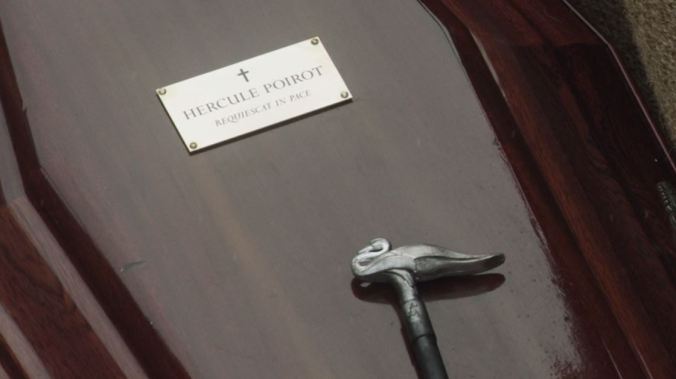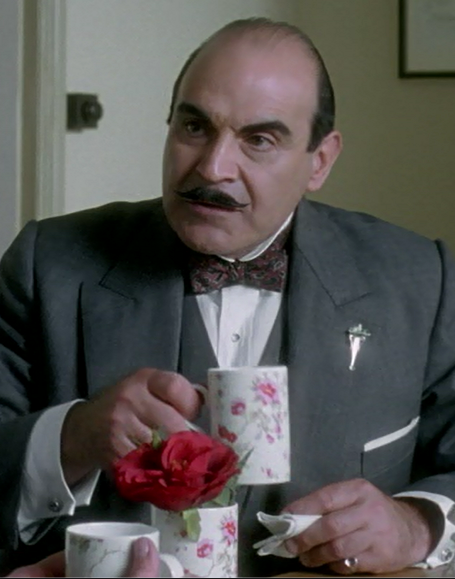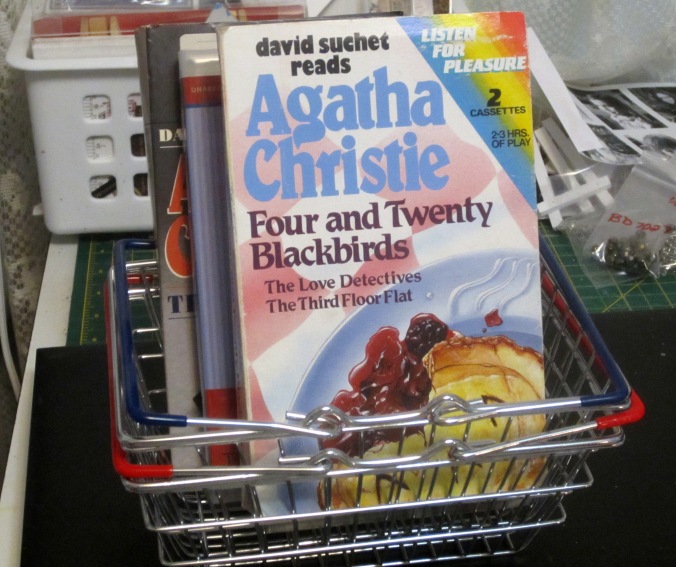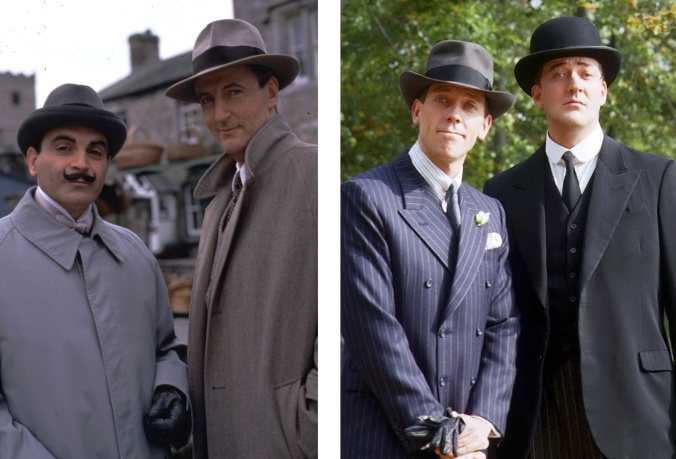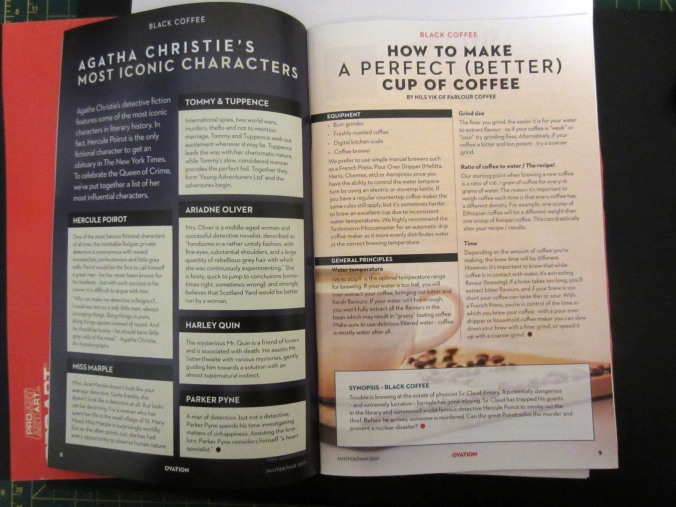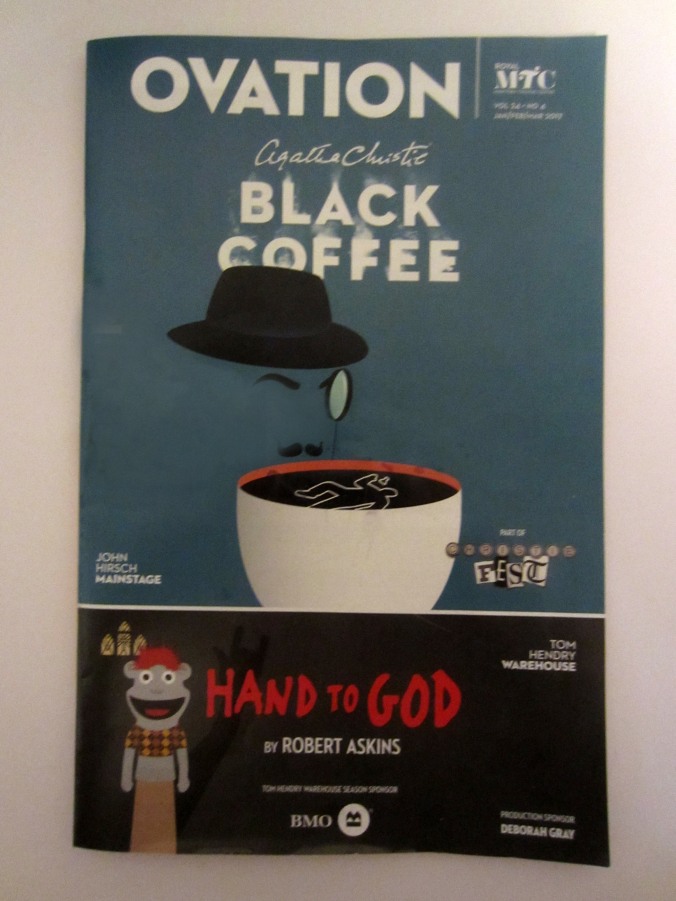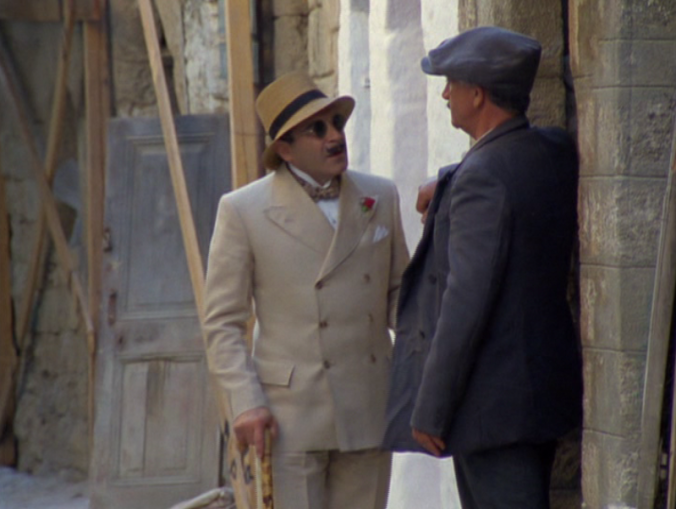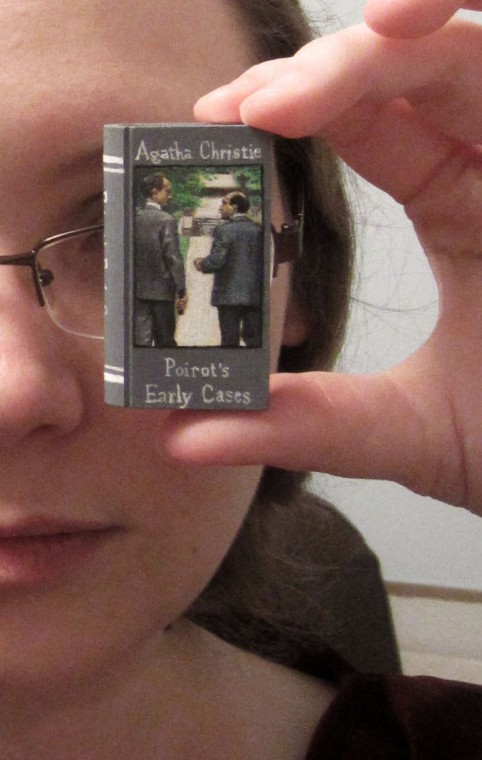Agatha Christie writes comparatively few forward-thinking criminals who connive to permanently remove the threat of Poirot. In fact, I deal with the issue in my own Poirot novel, attempting to answer the “Why?” Some of it is evident: Christie frequently makes Poirot more “famous in his own mind” but not taken seriously by criminals– until it’s too late. He uses his perceived ridiculousness at times as camouflage. At some points in the series, Poirot actually is virtually unknown in London (“Kidnapped Prime Minister”). But at other points (e.g. “The Veiled Lady,” “Hunter’s Lodge,” “Western Star,” etc) it is very evident that he is well-known as a blazing success by society and criminals alike. My story, The London Syndicate, takes the question on as a challenge: why don’t enterprising criminals make a little more effort to get him out of the way? For my own solution, consult the text! 😉
But for interest, Christie does throw in some examples of these people who, through cunning, panic, or even sheer ignorance, try to do in our favorite Belgian detective. Here’s a little compare/contrast on how it’s tackled in book, TV, and stage.
************
1) The Big Four. I’m just going to count this as “one.” The book is full of anecdotes of Poirot and Hastings battling it out with this international menace, with not a few dramatic brushes with death. Most notable is the explosion which Poirot uses to fake his own death (because like Sherlock Holmes he’s a bit of a jerk to his friend in that respect). 🙂 Many Christie readers dislike The Big Four for a variety of reasons– Christie did as well– but I find it hard not to enjoy the more energetic and risk-filled anecdotes of this very bizarre, Bond-esque Poirot account. It’s great fun because it’s so unique and different.
2) Mrs McGinty’s Dead. In this story, Poirot’s investigations into the McGinty case results in Dr Rendall getting the wind up and trying to push him under a train. The irony is that although Poirot delightedly assumes that McGinty’s murderer attempted to murder him and that this proves that he is on the right track, it’s actually a completely different crime that Dr Rendall is attempting to cover up. (In the adaptation, it is Mrs Rendall who does this, and she actually succeeds in shoving him onto the line.)
3) “The Case of the Egyptian Tomb.” The serial murder decides to try to add a meddling Poirot to his list of victims who are popularly supposed to be cursed by proximity to the opened tomb of an ancient pharaoh. Somehow Poirot manages to anticipate the spiking of his evening tisane with cyanide. His murder attempt failing, the murderer commits suicide instead (in the book).
4) “The Erymantian Boar.” This wild and crazy incident from The Labours of Hercules formed a large part of the conglomerate television adaptation, in which the killer Marrascaud is lurking in the Swiss establishment of Rochers Neiges. In the book, members of Marrascaud’s gang attack Poirot in his room at night, threatening to cut him with razor blades. They are thwarted by American tourist Schwartz and his fortuitous revolver, earning profound gratitude (not inexplicable annoyance– really, TV script?) from Poirot.
5) Black Coffee. In this one and only Poirot play by Christie, the murderer attempts to poison Poirot in a whisky and soda. Luckily, Poirot is as usual a step ahead of the game, and has arranged a substitution with Hastings ahead of time as part of his dramatic denouement.
6) Three Act Tragedy. This is not a deliberate targeting of Poirot, but he is fully cognizant (as the final lines of the novel reveal) that he could have easily been the recipient of the first poisoned cocktail. Almost everyone in the room was a potential murder victim. This last scene is really beautifully dramatized and delivered by Suchet, who manages to simultaneously bring out both the humor of Poirot’s vanity and the pathos of being betrayed by his friend.
7) Evil Under the Sun. This is an example of pure rage from the murderer when his crime is revealed by Poirot. Usually Poirot is deft enough to simply skip out of the way, but this time the killer manages to get his hands on the other’s throat before he is held at bay. Accurately portrayed in the television adaptation as well.
**********
Honorable mentions (including television additions):
–Death in the Clouds: The jury at the inquest nearly convicts Poirot of the murder on the plane! The verdict gets thrown out by the coroner.
He said, ‘I wonder what was on that paper that the coroner wouldn’t have at any price?’
‘I can tell you, I think,’ said a voice behind him.
The couple turned, to look into the twinkling eyes of M. Hercule Poirot.
‘It was a verdict,’ said the little man, ‘of wilful murder against me.’
‘Oh, surely– ’ cried Jane.
Poirot nodded happily.
‘Mais oui. As I came out I heard one man say to the other, “That little foreigner– mark my words, he done it!” The jury thought the same.’
–The A.B.C. Murders: At the beginning of the book, Poirot recounts to Hastings that not long ago he’d had a narrow escape, having been “nearly exterminated.” Hastings is impressed: “An enterprising murderer!” Poirot suggests that the better word would be “careless,” not enterprising. Some think that this incident is a direct reference to the jury in Death in the Clouds (above), but in my opinion, it seems much more likely to refer to Three Act Tragedy. Poirot does not claim that he was deliberately targeted for death, but does accept Hastings’ use of the word “murderer,” and “careless” is a good word to describe that particular murderer. But there is always the speculative possibility that Poirot could be describing an unknown incident that Hastings never learns about and records for us.
–Sad Cypress: In the television adaptation, the murderer attempts to poison Poirot in the same manner that Mary Gerrard was poisoned. But Poirot has always hated tea! 😀 Interestingly, this delightful addition to the original story appears to have been lifted directly from the pages of Black Coffee! In both scenarios, Poirot is given a poisoned drink which he substitutes, and he also fakes symptoms of impending death. Then the murderer, off their guard, launches freely into a smug confession of nefarious deeds, only to be overheard by the nearby police. I’m very pleased that this device from Black Coffee made it into the TV canon. The only downside to the TV addition is: how can the murderer possibly think that she’ll get away with this?
–The Murder of Roger Ackroyd: In the adaptation, the murderer takes some gratuitous pot shots at Poirot and Japp after his cover is blown.
–Curtain: The TV telling of Curtain includes Norton engaging in a dangerous cat-and-mouse power play with Poirot, seeming to threaten to withhold the latter’s medication.
‘It would be most unwise on your part to attempt to silence me as you silenced M. Ackroyd. That kind of business does not succeed against Hercule Poirot, you understand.’
-The Murder of Roger Ackroyd
